“Flappy Bird” Makes a Comeback in the Ton Ecosystem After Ten Years
On September 12, IGN reported that the Flappy Bird Foundation has acquired the trademark and copyrights for the viral mobile game “Flappy Bird,” planning to re-launch it in 2025 with new modes and characters.
The foundation also posted on X, declaring “I AM BACK!!,” although it did not disclose specific game details. Nevertheless, the announcement quickly gained traction, with the tweet receiving over 7 million views, highlighting the game’s lasting impact.
On September 16, the Flappy Bird Foundation announced that the new game would debut as a Web3 version on the increasingly popular Ton blockchain. However, interest waned as many traditional players had already learned about the game’s close ties to cryptocurrency, leading to a decline in enthusiasm.
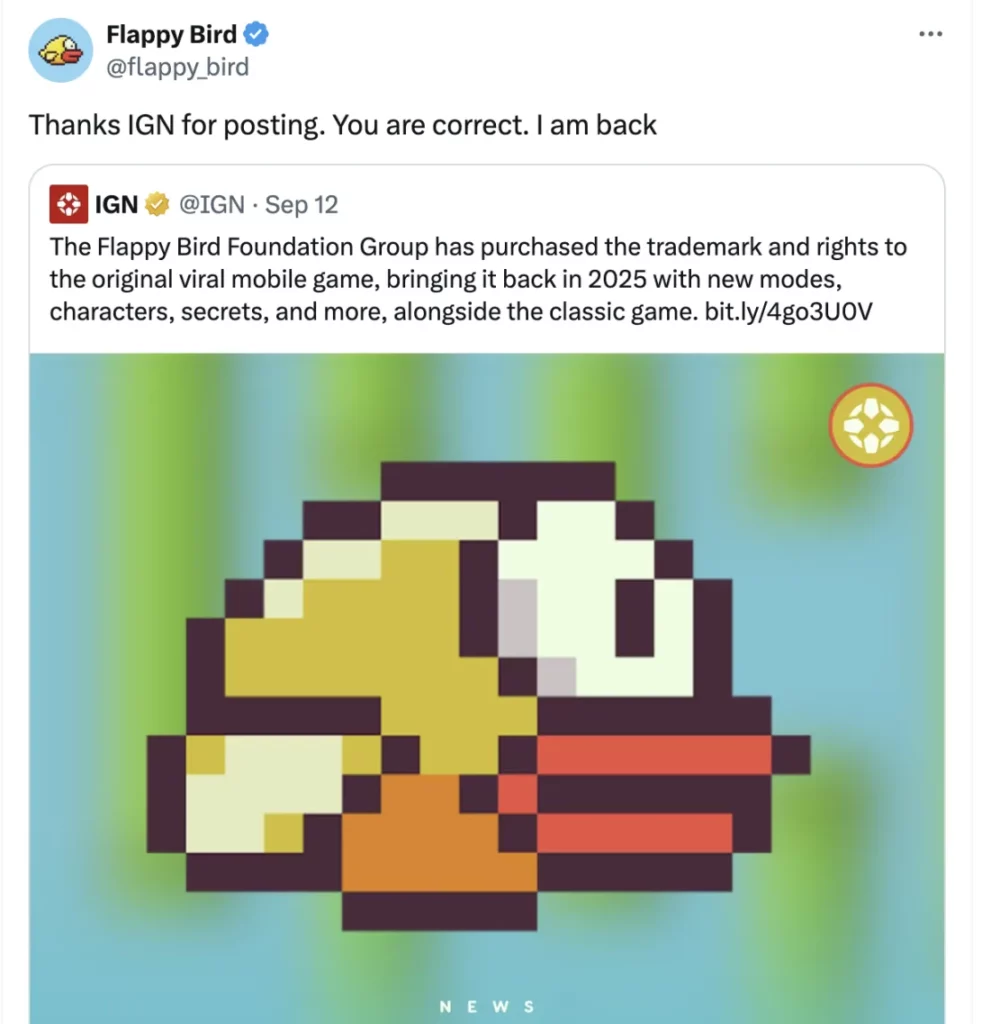
Controversy Surrounding the “Strange” Comeback
During its ten-year hiatus, “Flappy Bird” became one of the most cloned games ever, sparking interest among many longtime players. Cybersecurity researcher Varun Biniwale quickly began investigating the new game. In his subsequent article, he expressed skepticism about the game’s revival.
He noted that the original developer has no involvement with the new game, which prominently features cryptocurrency and “Web 3.0” elements. He uncovered a now-deleted page from last year that promoted the game as: “The legendary Flappy Bird is back, soaring higher than ever on Solana as it enters Web3.0.” This suggested that the Flappy Bird Foundation initially intended to launch within the Solana ecosystem during its explosive growth at the end of last year.
After the news broke, Dong Nguyen, the original developer who had not posted on X for seven years, clarified that he has no affiliation with the “new Flappy Bird.” He stated he has not sold anything and does not support cryptocurrency.
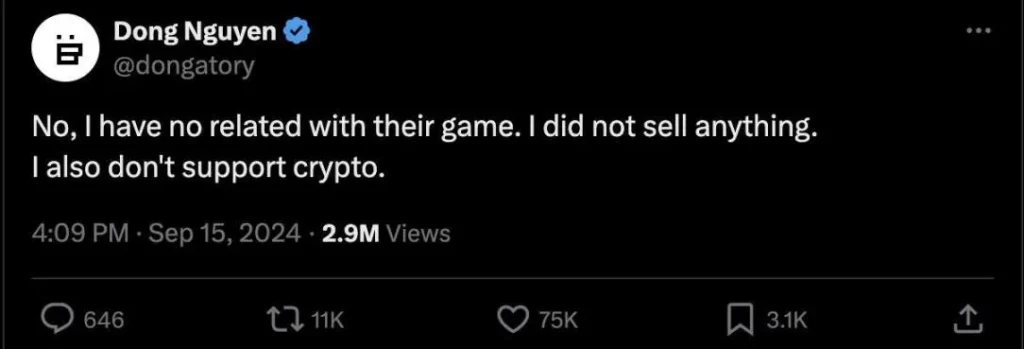
Moreover, old players left notes in response to the Flappy Bird Foundation’s announcements, warning others that the new game differs significantly from the original. Comments like “This seems like a cryptocurrency scam leveraging nostalgia to sell NFTs” were common.
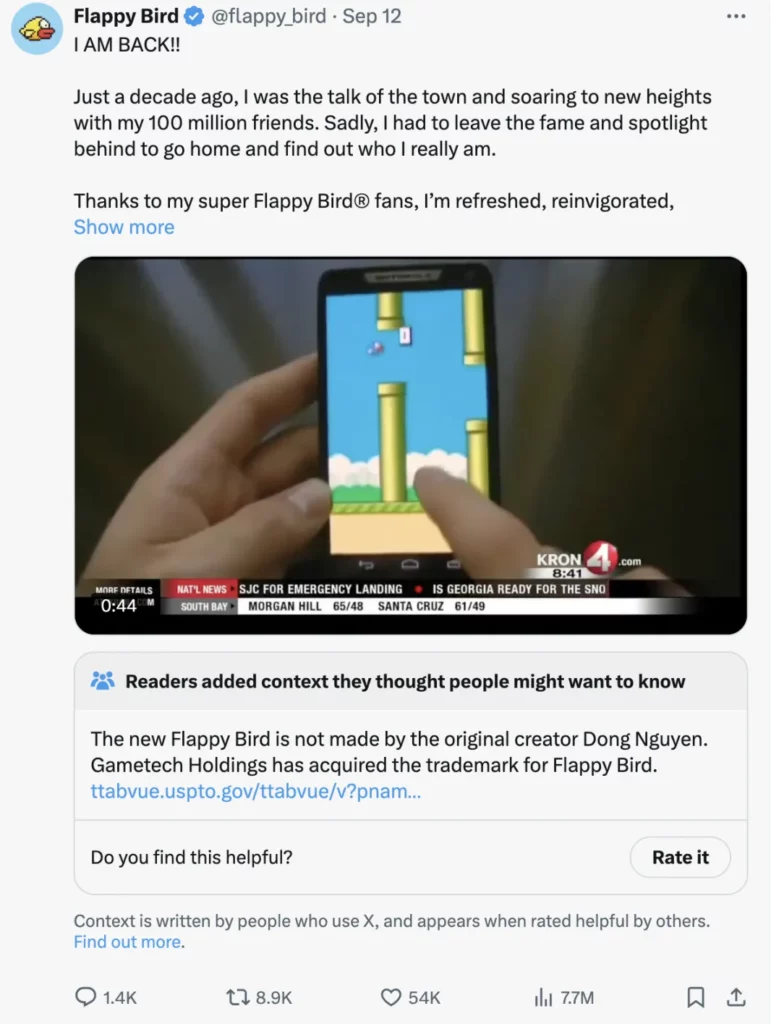
Regarding trademark issues, court documents from the U.S. Patent and Trademark Office revealed that a U.S. company named Gametech Holdings had sued Nguyen for the game’s trademark. Due to the long inactivity of “Flappy Bird,” it was deemed abandoned, allowing Gametech Holdings to claim the trademark for free. Nguyen, criticized by old players for his inaction, never attempted to reclaim it. Gametech eventually transferred the trademark to the so-called Flappy Bird Foundation.
The Phenomenal Rise of “Flappy Bird”
“Flappy Bird,” a casual mobile game developed by Vietnamese developer Dong Nguyen, was released in May 2013. The game’s mechanics are simple: players control a bird named Faby, tapping the screen to navigate between pipes. Nguyen completed the game in just two to three days.
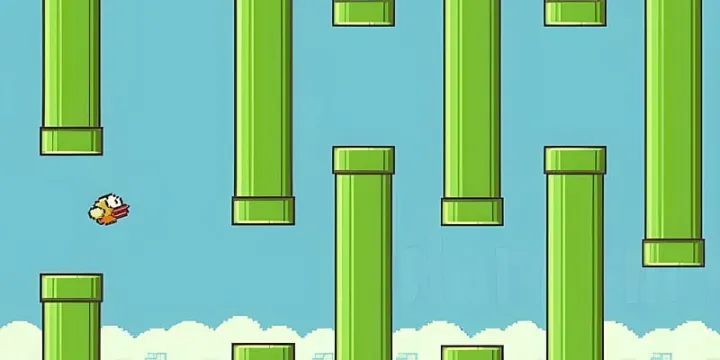
In early 2014, “Flappy Bird” skyrocketed in popularity, becoming the most downloaded free iOS game on the App Store by the end of January. During this peak, the game earned approximately $50,000 daily through in-app advertising.
On February 10, 2014, “Flappy Bird” was removed from the App Store and Google Play. Nguyen expressed guilt over the game’s addictive nature and its overuse. Despite the game’s success, it faced criticism for its difficulty, graphic design, and perceived plagiarism.
Even after its removal, some players found it challenging to “quit,” leading to high resale prices for devices with the game installed before its removal. Cloned versions of “Flappy Bird” quickly appeared in the App Store but were subsequently removed by Apple and Google due to their similarities.
“No NFTs, Only Airdrops!”
In response to skepticism about “exploiting nostalgia to sell NFTs,” the Flappy Bird Foundation has repeatedly emphasized that the new game “will never have NFTs.” Concerns among players are not unfounded. The foundation’s leadership includes game designer Michael Roberts, who is also the founder of the NFT project “Deez,” launched in September 2021.
According to the Flappy Bird Foundation, players can choose to “integrate Web3” while playing via Telegram, but opting out is also an option. Future mobile versions of the game will not feature cryptocurrency elements and will be entirely free.
Cointelegraph reports that the new game will generate revenue through in-app purchases, including items that enhance energy and modify flight physics. Additionally, a spokesperson for the development team stated that the game would earn revenue from optional in-game ads, which provide benefits like score multipliers.
Currently, the game is promoting a “Flap to Earn” event, promising future airdrops of $FLAP tokens. With popular Ton ecosystem projects like Catizen and Hamster Kombat completing their airdrops, the Web3 version of “Flappy Bird” seems poised to seize the moment. The original game’s success and its established player base offer significant confidence for the new version’s future.
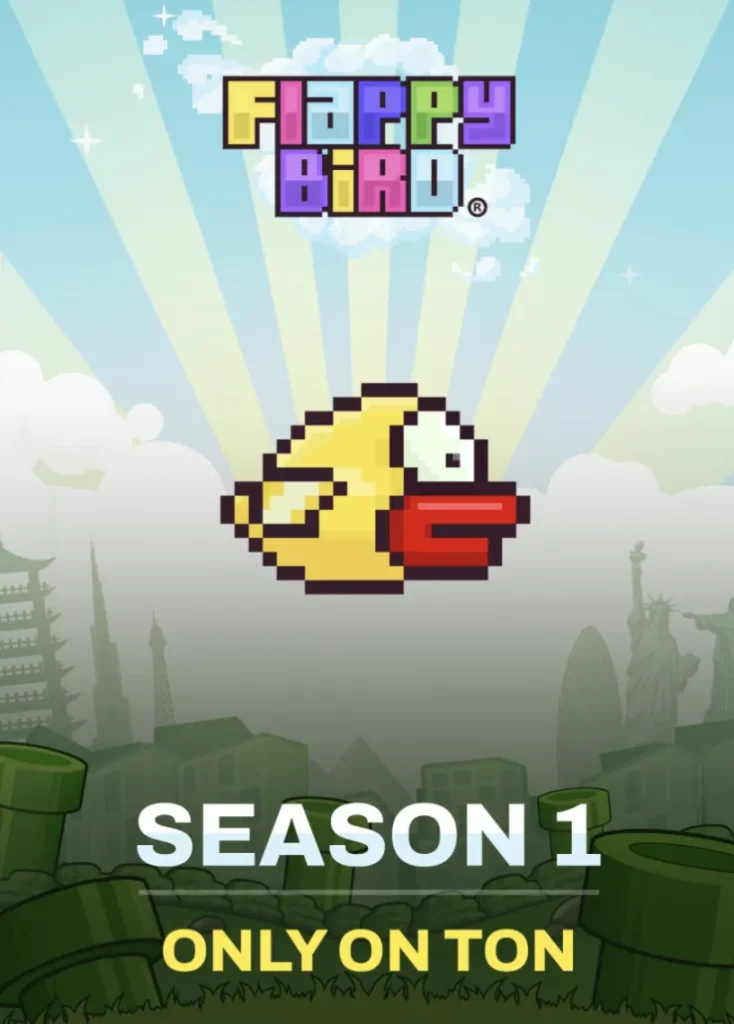
However, well-known traditional game IPs come with both benefits and burdens. The reluctance of traditional players toward Web3 and cryptocurrency is not new, and user confidence may waver following recent community dissatisfaction with major Ton ecosystem airdrops.